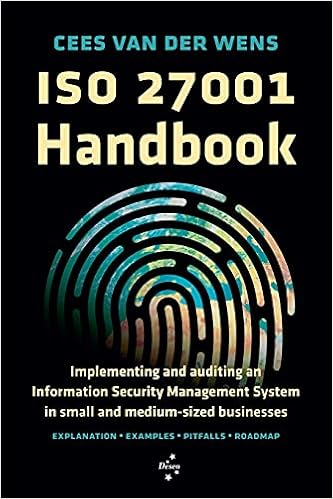
How to choose the most appropriate training
When implementing and maintaining a management system, it becomes vitally important to ensure that you have acquired adequate knowledge of the standard to ensure success. It does not matter if you are considering ISO 27001:2013 for information security, ISO 9001:2015 for quality management, or ISO 14001:2015 for environmental management, gaining the necessary knowledge about the standard requirements is an important first step to implementing. However, it can be difficult to pick the right course.
Below is a table explaining the different training courses available, including duration and suggested participants:
Which course should you choose?
So, with all of the training course options available, how do you pick the right course? This is very much dependent on which role you will play in the implementation and maintenance of the management system.
Here is a bit about the different types of courses to help you decide:
- Foundations course – Do you just need to understand the basics of the ISO standard? Then the foundations course might be what you want. This course becomes invaluable if you will have expert assistance for your implementation, but need to have a good overall understanding of the requirements. For instance, if you will have a consultant, but want to know what to do when they are done, then an overall understanding of the ISO standard could be enough knowledge.
- Data protection officer course – With the EU General Data Protection Regulation (GDPR) governing how personal information needs to be protected, you will want to have a main person in charge of meeting this regulation: the data protection officer. If this will be you, then the EU GDPR data protection officer course is what you need to understand the ins and outs of this regulation and what it means for your business.
- Internal auditor course – All management systems include a process for your organization to perform an audit of your processes internally to your organization to confirm for yourself that your processes are happening as you planned them to. If you will be one of the internal auditors who will perform these process audits, then this course will help you to understand not only the requirements of the standard, but also the requirements of how to perform a process audit to confirm conformity and find opportunities for improvement in your organization.
- Lead implementer course – The main person in charge of implementing the management system needs more than just a passing understanding of the standard requirements. If this will be you, then the lead implementer course will give you a more in-depth knowledge of what the standard requires, as well as knowledge of how to implement the requirements at your organization with practical tools to help. If you are going to be a consultant for others, this course is also an invaluable tool, with certification an option to demonstrate your competence.
- Lead auditor course – With the ISO management system standard, many companies will choose to apply for certification as an independent method to demonstrate their compliance with the standard. This process is done by auditors from a third-party, independent certification body who will confirm that the processes you have implemented meet the requirements of the ISO standard. The auditors who will perform these audits need to pass the examination for lead auditor certification. If you are performing internal audits for a company, this training can also be beneficial, as it allows you to understand the training taken by the certification auditors.
Find the training that is right for you
Remember, when picking the training, you should first think about how you will apply the knowledge to ensure you choose the most suitable training for your current or future role. You don’t want to finish training only to find that how you are intended to apply your newfound skills is incompatible with the knowledge gained, as you may then need to re-take additional training for the new role. Choose the right training from the start, and you can be better assured that your utilization of the knowledge will be better applied, and your management system implementation will be easier.





